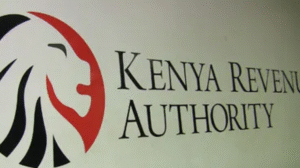NCBA Bank has once again found itself at the center of controversy, with increasing accusations of unfair banking practices and questionable charges levied on its customers.
The bank, which has already been under scrutiny due to its involvement in Kenya’s ongoing music royalty protests, is now facing fresh allegations from disgruntled customers who claim that the institution is engaging in outright theft through excessive transaction fees.
A growing number of NCBA Bank customers have voiced their frustrations over what they describe as unreasonable charges on routine transactions.
One of the most glaring examples involves a fee of KSh 345 imposed on customers for various transactions, including payments for statutory services.
This fee, applied to each transaction without clear justification, has left many feeling exploited by the very institution entrusted with safeguarding their finances.
The concerns about NCBA Bank’s practices are not new but seem to be gaining momentum as more customers speak out.
The bank’s involvement in other contentious activities, such as its alleged collusion with the Music Copyright Society of Kenya (MCSK) in the mismanagement of artist royalties, has only added to the growing distrust.
Musicians and other stakeholders in Kenya’s creative industry have accused the bank of playing a role in the unfair distribution of royalties, contributing to the exploitation of artists.
The recent revelations about NCBA Bank’s transaction fees have sparked a fresh wave of criticism.
Many customers have expressed outrage, arguing that the bank is taking advantage of its position by imposing hidden or poorly explained charges.
For those who regularly use the bank for everyday transactions, the KSh 345 fee quickly adds up, leading to significant financial strain over time.
The broader implications of these practices are troubling. In a country where the majority of the population is still working towards financial inclusion, such fees can act as a barrier to accessing banking services.
Customers who are already struggling with the high cost of living are now burdened with additional, seemingly arbitrary charges that further erode their limited resources.
Moreover, the lack of transparency surrounding these fees raises serious ethical questions.
Customers deserve clear and honest communication about the costs associated with their banking services.
The perception that NCBA Bank is engaging in underhanded practices to extract more money from its customers only serves to undermine trust in the institution.
It is becoming increasingly evident that NCBA Bank needs to address these concerns head-on.
The bank’s reputation is at stake, and its continued silence or failure to rectify these issues could lead to more severe consequences, including potential regulatory action or a mass exodus of customers seeking fairer alternatives.
In light of these allegations, there are calls for greater oversight of NCBA Bank’s operations, particularly its fee structures and transaction policies.
Customers are demanding accountability and a thorough investigation into the bank’s practices to ensure that no further exploitation occurs.
The situation at NCBA Bank reflects a broader issue within Kenya’s banking sector, where hidden charges and lack of transparency are all too common.
For customers, the key is to stay informed and vigilant, questioning any unexplained fees and seeking alternatives if necessary.
Even as the scrutiny on NCBA Bank intensifies, the bank will need to take decisive steps to rebuild trust with its customers.
Whether this will involve reducing or eliminating the contentious KSh 345 transaction fee, improving transparency, or making other significant changes remains to be seen.
What is clear, however, is that the bank’s current practices are unsustainable and risk further alienating its customer base if not addressed promptly and effectively.





















Add Comment